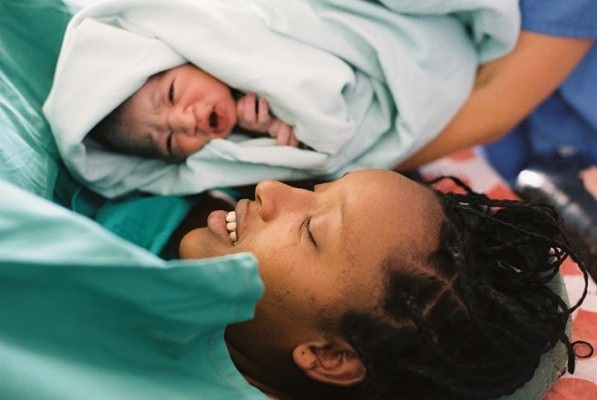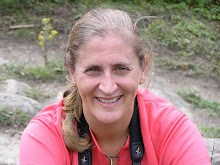March 8th
The local language is called Oromifa and although I had not previously heard of it, it is the third most commonly spoken language in Africa after Swahili & Arabic. The official language of Ethiopia is Amharic, which is in reality only spoken by a minority of the country's population. In the past there have been political moves to make Oromifa the official language but as the Amharic speakers tend to be the most educated people (and hence often the" ruling" class) and as Amharic is a language that is particular to Ethiopia (Oromifa is spoken in Sudan, Uganda & Northern Kenya as well) these moves were unsuccessful. Amharic is a Semitic language whereas Ofomifa is a tribally derived language and thus there are absolutely no similarities between the two. Hence the few words of Oromifa that I have toiled to learn (languages were never my forte and it definitely gets harder as you get older) will be almost useless to me once I leave Gimbi to go travelling as the language of the North is Amharic and the South has other rare tribal languages & Amharic. Oromifa is spoken in Addis but as Ethiopians there also speak the best English (and like to practice) I am unlikely to use it much.
In Gimbi and the surrounding areas the majority of people speak Oromifa with only a small number speaking some Amharic as well. The nurses and midwives usually speak Oromifa & Amharic and in addition to this they will have a varying ability in English. Tekle (the Ethiopian Obstetrician) doesn't speak Oromifa only Amharic (see earlier comment about educated/ruling class) and so also requires translation. As a result the ward round and clinic (if Tekle is there as well) require a 3-way translation-Oromifa to Amharic and Oromifa to English (or Tekle will do Amharic to English in a relay).
The translations in clinic can be bewildering-to start with one thing that I have learned not to question is the age that is written on the outpatient card. Often a woman will appear to be a older than the age that there cards states (and in case you wonder there are no sensitivities that mean that women beyond a certain age start to subtract years here) I used to ask about this but learned that the discrepancy is because people do not know how old they are as there is no birth notification, few people have calendars or anyway of recording dates as they don't read and write (apparently those with some education will write the dates of birth of their children in the family bible). So if I questioned the age of a patient I would sit through a protracted discussion between the clinic nurse and the patient that seemed to involve reminiscences about memorable events (droughts, bumper coffee harvests etc.) that allowed her to gauge her likely age- the summary of this would be along the lines of "yes-she might be a bit older" so I have learned to judge by appearances and only ask the question if it will make a material difference to my management (which is very rare). The other problem with translation is when as apparently simple question like "how many children does she have?" leads to a long and sometimes heated exchange between the nurse and the patient- the answer will come back eventually as "five" (or whatever) leaving me none the wiser about what was being discussed. for so long and so animatedly.
Greetings in Oromifa are one of the most amusing things, as they seem to involve a competition to see who will run out of possible greetings first. The most commonly used greetings are either "Nagada?" which literally means "is there enough?" or "Fayada?" which means is there health?" The responses are "Naga"-"there is enough" or "faya"-"there is health". These can be used as a response to either question (which given the questions does make sense). In addition to this there is "akkum" which sort of means "hello" and "Atembulteh" which is "good morning" - the response to either of these is also "faya" or "naga". So an exchange on arriving on the ward may go along the lines of "Akkum", "Naga-fayada", "Faya-Atembulteh", "Faya-Nagada", "Naga"-well this is the way it seems anyway and whether or not I start the exchange or am the respondent unsurprisingly it is always me who runs out of greetings. Greetings are common as you would greet or be greeted by strangers on the street with a"fayada""naga" exchange (thankfully it need go no further) and on meeting someone you know the full exchange is expected along with a minimum of a hand-shake (a very casual acquaintance) through to grasping hands in a hand shake and leaning forwards to "bump" shoulders right then left then right again (a bit like the movement to kiss on alternate cheeks without the cheek contact or air kissing) which you would do for someone you see regularly or know fairly well.
As if the extensive greetings are not enough the patients will often shake hands in clinic as well particularly the older ones-the very elderly will proffer their wrist rather than their hand, which is done as a sign of respect to you as a doctor (this practice is also used if you have dirty or wet hands when the hand shaking uses hand to wrist but does not cease).
The fact that you are a "faringe" makes it no less likely that you will be greeted where ever you go and in fact I suspect it may make it slightly more likely as seems to be used as a sort of test to see how much you have learned by judging in how many greetings physical and verbal you can string together before you run out!


No comments:
Post a Comment